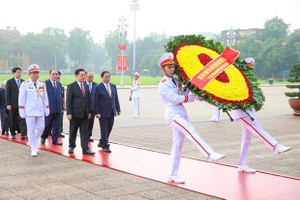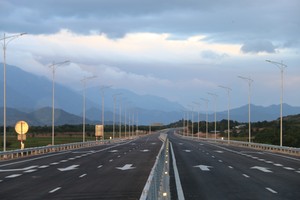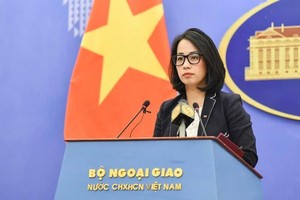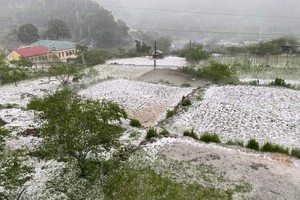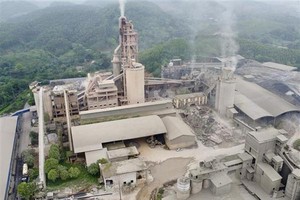Doctors Le Van Dinh and Ta Luu, head and deputy head, respectively, of the Treatment Team at Military Post 22, on Truong Son Road, talked about the hardships and challenges that medical staff endured to provide treatment to wounded soldiers.

It was in the rainy season of 1967. The road in Laos, west of mountainous Truong Son, became flooded (also known as the Ho Chi Minh Trail). Broken branches and landslides blocked the slippery trail, coupled with the enemy’s bombings day and night, made the transportation of wounded soldiers from battle fields to the military post almost impossible.
Doctors and nurses had no choice but to travel to the camps where injured and sick soldiers were staying, or even to battlefields to give them treatment.
Dinh said, “Many soldiers needed treatment. Not only those injured in battlefields, but also those wounded when working. A large number of others suffered from acute malaria and gastrointestinal disorders."
“Many doctors and nurses were killed in battlefields on such trips,” Dinh said. “I still remember a day when we were near Da Deo. Dung, a young doctor from our team, dashed into the battle to save Quy, a volunteer girl who was secretary of the Communist Youth Union of the Youth Volunteer Force 79, from a bomb raid.”
Impressed by Dung’s braveness, Quynh fell in love with him. “It would have been a beautiful wartime love story, if Dinh had not been killed shortly afterwards,” said Dinh.
A few weeks later, Dung and Cu, a nurse, were ordered to go to a medical station on Path 12 to help doctors and nurses there. Just as they arrived, a sudden bomb raid killed Cu. Dung was injured by a bomb shell fragment, which cut into his stomach.
Unfortunately, the medical station and its medical equipment were also destroyed by the bombing. Although trying their best, the surviving nurses could only give first aid to victims who were only slightly wounded. As to Dung, after dressing his wound, they decided to phone the post to ask for help.
Dinh said, “After receiving the call, we went to the medical station immediately. It took us hours to get there because of the difficult terrain. It was too late. Dung was at his last gasp because he had lost too much blood.”
Ta Luu recalled, “One night in the summer of 1968, the telephone rang when we were sleeping like logs. Pressing my ear against the receiver, I heard a stranger’s voice, requesting, “We have a severe case. The patient has a wide open wound on his belly and is suffering from peritonitis. Will you please come to our camp and perform the surgery?”
The stranger, a nurse, explained that they could not transfer the injured soldier to our post because they feared that he would die in transit. Above all, the morning was approaching and they could not use the van to transport the victim, as it would be detected and attacked.
After packing all the necessary medical equipment in their rucksacks, Luu, together with two other doctors and four nurses, headed to the camp where the injured solider was kept.
Tu said, “It was 4p.m. when we got to the destination. We all were hungry and thirsty after the long trek. After reading his medical record, we decided to perform surgery immediately, as the victim suffered from a ruptured spleen, leading to internal haemorrhage.
“The patient needed 600 ml of blood, and all soldiers and nurses with O type blood at the medical station were ready to make donations to save his life,” added Tu.
After elevating the patient’s blood pressure to a level that allowed him to undergo surgery, the team of doctors began their task.
Tu said, “As soon as we just finished the surgery, they brought in another solider whose leg was cut by a bomb shell fragment, we had to perform another surgery to pick out the fragment from the victim’s leg. After the surgeries, we were all exhausted because we had not eaten anything since lunch.”
He added those were successful surgeries because the injured soldiers could go back to the battlefield again after fully recovering.
Dinh and Tu said these were just a few typical cases among the many they had experienced during the war.
Dinh said, “We are telling the stories to explain to our descendants how and why we could win the war, although our weapons and military equipment were not as modern as those of the Americans.
“With our fearlessness and steadfastness in struggle and firm belief in a future victory owing to our just cause, we could make history,” added Dinh.
